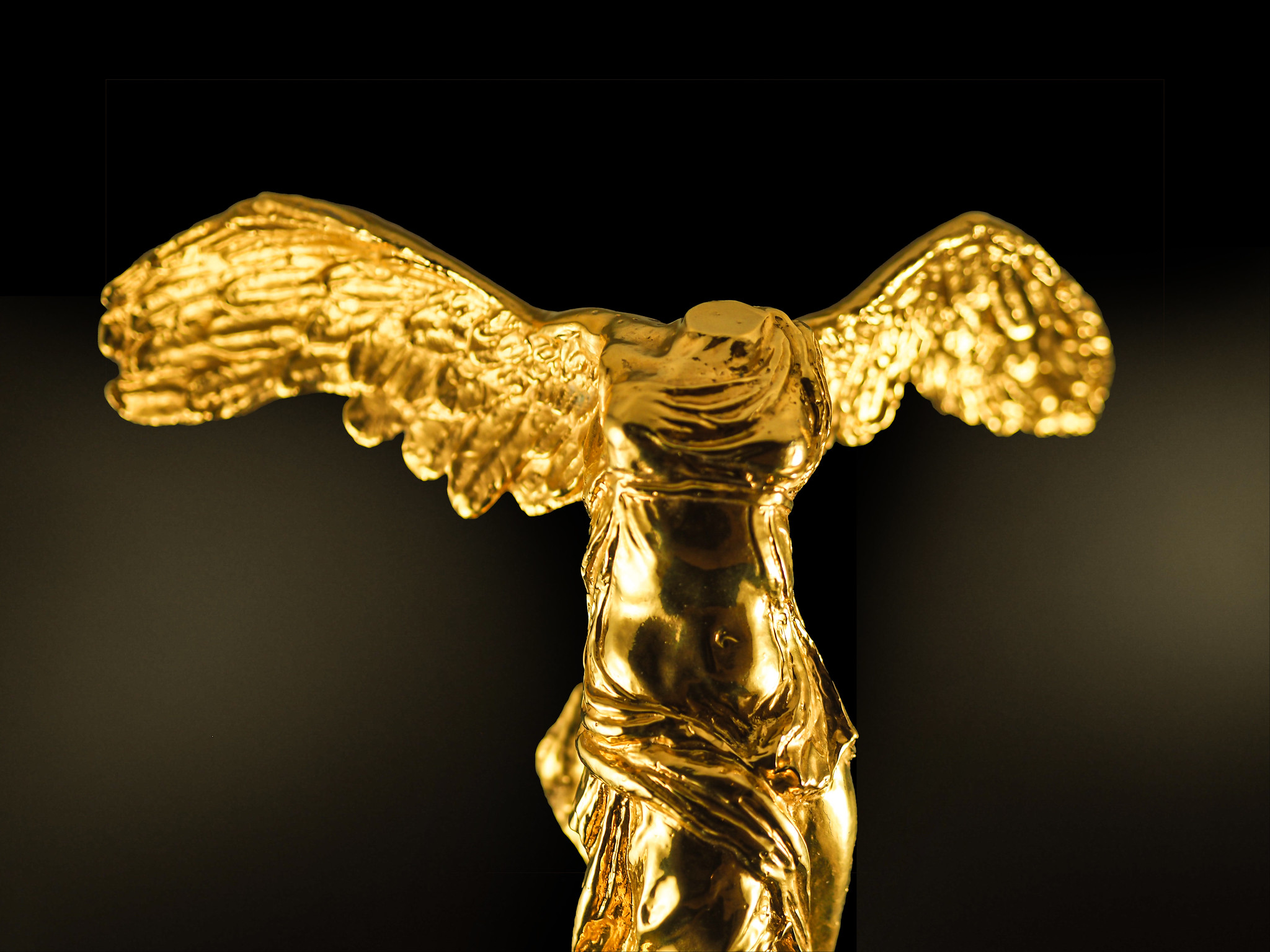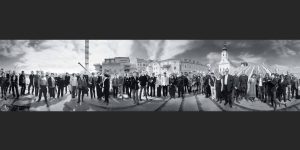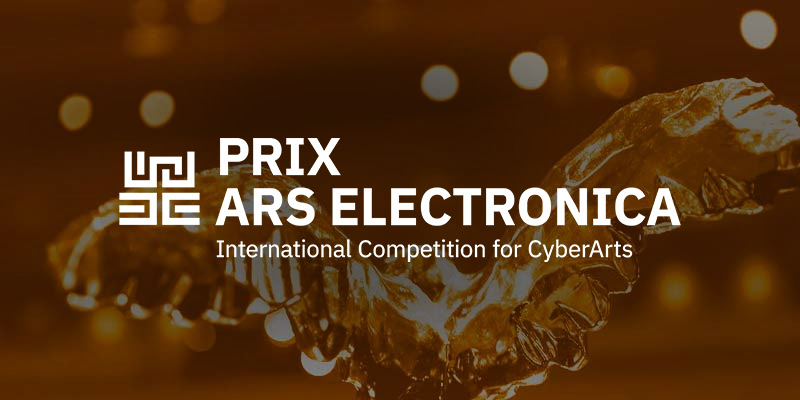COMPUTER ANIMATION / FILM /VFX
Paul Debevec (US)
Paul Debevec is a research associate professor at the University of Southern California and the associate director of graphics research at USC’s Institute for Creative Technologies. Debevec’s Ph.D. thesis presented Façade, an image-based modeling and rendering system for creating photoreal architectural models from photographs. His image-based lighting techniques have been used in his films Rendering with Natural Light (1998), Fiat Lux (1999), and The Parthenon (2004).
Anezka Sebek (US)
Anezka Sebek coordinates the BFA animation sequence and teaches narrative, motion research collaboration and thesis studios. Her many industry credits include executive producer of computer graphics for the motion picture Judge Dredd. She is currently working on a diverse range or projects including a pilot program for Unesco to develop a Sub-Saharan African animation industry, as well as research and development in the field of motion capture and tracking. She is a repeat member of Siggraph’s Computer Animation Festival, as juror and animation theater director.
Ivan Tsupka (UA)
Ivan Tsupka is an artist working in a field of media art. With a strong classical painting background, he began work on computer-generated art and animation at the end of 90s. He has participated in more than 40 exhibition and festivals of contemporary art and since 1999 he has been a member of the board of Kiev International Media Art Festival and Kiev Media Art Lab. He also works as a director of music videos and TV commercials.
Siegfried A. Fruhauf (AT)
Siegfried A. Fruhauf studied experimental visual design at the Linz Art University. In 2002, he was recipient of the annual prize awarded to a promising young filmmaker by the Austrian Federal Chancellor’s office. He has participated in numerous film festivals around the world.
Jürgen Hagler (AT)
Juergen Hagler studied art teaching and experimental visual design at Linz Art University. He has worked in the field of computer animation for over ten years. He is also an author for the Digital Media for Artists e-learning platform, and has taught classes in 3D computer animation at Vienna’s Academy of Graphic Arts and Linz Art University. He is currently head of the animation department at Hagenberg University of Applied Sciences.
DIGITAL MUSICS
Sabine Breitsameter (DE)
Sabine Breitsameter is a curator, editor, author and designer working with audio-medial and electro-acoustic art forms. As an author, editor and producer of cultural radio programming at Germany’s ARD network, she has curated numerous festivals and symposia. She is professor of sound design and production/media arts and sciences in Darmstadt Technical College’s media program and is also guest professor of experimental sound design at Berlin’s University of the Arts.
Josef Klammer (AT)
Josef Klammer studied photography and trained as a drummer at the University of Music and Dramatic Arts, Graz. He has staged exhibitions, sound installations and interdisciplinary music projects and produced music for radio, TV and film, radio plays and programs for the ORF, and music for theatrical productions in Hamburg, Stuttgart, Schwerin, Gera, Ljubljana, Klagenfurt, Linz and Graz, as well as at the Vienna Festival. He has given numerous concerts and produced CDs together with many different ensembles for new improvised electronic music.
Yuko Nexus6 (JP)
Yuko Nexus6 started her music (improvisation, composing, field recording and programming) in the early 90s. In addition to her position as part-time lecturer in a Japanese art school, she often tours around the world to play her music. Since 2001 she has been a member of WAPO (a women’s art network in Osaka) and View Masters (field recording society), among others. She is currently working on some new CD projects thanks to a 2007 Foundation for Contemporary Arts grant.
Chen Qianbin (CN)
Chen Qiangbin is a composer, professor, and vice-dean of the music engineering department in the Shanghai Conservatory of Music. In 1990, Professor Chen Qiangbin originated Shanghai Electronic Music Laboratory. In 2003, he was deputed to be the vice-dean of the engineering department. He was the director and producer of the 2006 Shanghai International Electroacoustic Music Week.
Paul D. Miller aka DJ Spooky (US)
DJ Spooky (Paul D Miller) is a composer, multimedia artist and writer. His written work has appeared in The Village Voice, The Source, Artforum and Rapgun amongst other publications. Miller’s work as a media artist has appeared in a wide variety of contexts. He is the author of Rhythm Science (MIT Press 2004) and Sound Unbound, an anthology of writings on electronic music and digital media (MIT Press 2008).
INTERACTIVE ART
Andrew Cameron (UK)
Andi Cameron is an artist, designer, curator, writer and educator. His focus is on interactive media. Andi co-founded the Antirom studio in London and the Hypermedia Research Centre at the University of Westminster in 1994. In 2001 he was appointed visiting artist and subsequently creative director in interaction design at Fabrica, the Benetton research center.
Sonia Cillari (IT)
Sonia Cillari is an Italian media artist and architect. Her work involves the creation of sensorial and perceptual mechanisms in immersive and augmented environments. Her artistic investigation examines how patterns of consciousness, perception and identity emerge in such settings. Over recent years she has been specifically interested in a field of research concerning the “body as interface”.
Stephen Kovats (CA)
Stephen Kovats, media researcher and architect, is the artistic director of Transmediale, Berlin’s festival for art and digital culture. Previously he was V2_Institute for the Unstable Media’s chief program curator and initiator of the Bauhaus Dessau Foundation’s Electronic Media Interpretation Studio. He works in the dynamic relationships between media, political, and electronic space in projects, conferences and festivals.
Tomoe Moriyama (JP)
Tomoe Moriyama is media art curator at the Museum of Contemporary Art, Tokyo. Since 1989, she has organized over 30 exhibitions on media art and pre-cinema history and mainly working for new-media art and the history of visual devices, at the Tokyo Metropolitan Museum of Photography (TMMP). She teaches media arts as a project associate professor at the University of Tokyo. She is the author of several books on media art.
Joachim Sauter (DE)
Joachim Sauter studied at the Academy of Fine Arts, Berlin, and at the German Academy for Film and Television, Berlin. He has been using computers both as a tool and as a medium from the early stages of his work. He founded ART+COM in 1988 together with other artists, designers, scientists and technicians. Their goal was to practically research this new upcoming medium in the realm of art and design. Since 1991 he has been full professor for new media art and design at the Berlin University of the Arts and since 2001 adjunct professor at UCLA, Los Angeles.
HYBRID ART
Tim Edler (DE)
Tim Edler studied computer science and architecture at the Berlin Technical University. In 2000 together with his brother Jan he founded their office “Realities:United” in Berlin. All their projects deal with issues of space, information, message and communication. Apart from their project-related work, both of them have taught at various institutions such as the Stiftung Bauhaus Dessau, the Berlin Technical University and the Pasadena Art Center College in Los Angeles. Since 2005 Tim Edler has held a visiting professorship at the University for the Arts in Bremen.
Jens Hauser (FR/DE)
Jens Hauser (FR/DE) is a Paris-based art curator, writer, cultural journalist and video maker focusing on the interactions between art and technology, and on transgenre and contextual aesthetics. Hauser has organized L’Art Biotech (2003), a show on biotechnological art, and Still, Living (2007) at the Biennale of Electronic Arts Perth, and Sk-Interfaces (2008) at FACT. He is currently a lecturer at the Institute of Media Studies at Ruhr University Bochum, Germany, and has been a guest lecturer internationally.
Richard Kriesche (AT)
Richard Kriesche founded the art society “Pool” (1969) and the media gallery “Poolerie” for photography, film and video (1973). Since the end of the 80s he has held several teaching posts, among others for the Vienna Technical University, the Offenbach University of Design, and the École Supérieure des Beaux Arts in Paris. Kriesche is now head of “Kulturdata”, a production platform focusing on the coherent advancement of the arts, sciences and economics.
Michael Naimark (US)
Michael Naimark is a longtime media artist and researcher. He is expert in place representation and interactive movie maps. His work is an unusual combination of optimism and activism. Naimark was instrumental in the founding of several worldrenowned research labs and his art projects exhibit internationally. He received the World Technology Award for the Arts in 2002. He is currently on the visiting committee for the MIT Media Lab and on the faculty in the interactive media division of the USC School for Cinematic Arts.
Gong Yan (CN)
Gong Yan graduated from L’École Nationale Supérieur des Beaux-Arts in Paris. She is the director of Art World magazine and the director of the O Art Center, Shanghai Institute of Visual Arts. She was the artistic director of the Shanghai eArts Festival 2007.
U19 – FREESTYLE COMPUTING
Sirikit Amann (AT)
Sirikit Amann studied political science, theater and economics in Vienna, Munich and Boston. Since the 80s, she has been involved primarily with cultural education in the context of new media on the national and international level. Until 2007, she was a department manager for cultural mediation at KulturKontakt Austria. Currently, she heads the newly-founded Department of Artistic and Cultural Mediation at the Austrian Federal Ministry of Education, Art and Culture.
Robert Glashüttner (AT)
Since 2002, he has been an editor, moderator and web-host at the Austrian state broadcaster ORF’s radio station FM4, where his work has focused on gaming and internet culture as well as electronic music. The list of magazines that have published his work includes Intro, De:bug and, most recently, TBA.
Christopher Lindinger (AT)
Christopher Lindinger studied computer science at the University of Linz and cultural management in Salzburg. He has worked as researcher in the field of scientific visualization and as a freelance developer for the entertainment industry. Since 1997 he has been affiliated with Ars Electronica and currently holds the position of the director of research and innovation in the Ars Electronica Futurelab. Beside this, he works as a lecturer at several universities in Austria, Germany and the UK.
Irmgard Oberhauser (AT)
Irmgard Oberhauser studied business, economics and accounting at the University of Innsbruck. Since 2000 she has been teaching at the Dornbirn Technical College. She is director and staff member of several projects, including Cyberschool, Netdays and ÖKS.
Angelika Plank (AT)
Angelika Plank has been in charge of graphic education at the Linz Art University since 1999. She has worked on diverse projects, including two Austrian and one European competition involving graphic education and new media. She is the president of the European Regional Council of the International Society for Education through Art (InSEA).
DIGITAL COMMUNITIES
Silvana Lemos de Almeida (BR)
Silvana Lemos de Almeida is a journalist and educator with a vast experience of media production and advocacy and the use of digital technology for the promotion of social justice and human rights in Brazil. The focus of her work nowadays is as a consultant in a several digital community projects evaluating process and results.
Isaac Mao (CN)
Isaac Mao is a software architect, entrepreneur and learning technology, social technology researcher. He divides his time between research, social work, business and technology. He is now directing/advising some non-profit programs and several forprofit businesses in China.
Danny O’Brien (US)
Danny O’Brien is the international outreach coordinator for the EFF. He works to help us collaborate with organizations and individuals fighting for liberties across the world. Danny has documented and fought for digital rights in the UK for over a decade, where he also assisted in building tools of open democracy such as “Fax Your MP”. He founded the award-winning NTK newsletter, and has written and presented science and travel shows for the BBC.
Gunther Reisinger (AT)
Gunther Reisinger is directing a research project on net-based art at the Ludwig Boltzmann Institute Media.Art.Research in Linz (AT). Additionally, he is a researcher at the University of Graz (AT) with a focus on the latest art history, especially media- and netbased art. In his research, he tries to combine different scientific methods in order to develop appropriate descriptive methods for “ephemeral” art such as net art.
Saskia Sassen (US)
Saskia Sassen is Robert S. Lynd Professor of Sociology at Columbia. Her research and writing focuses on globalization (including social, economic and political dimensions), immigration, global cities (including cities and terrorism), the new networked technologies, and changes within the liberal state that result from current transnational conditions. In her research she has focused on the unexpected and the counterintuitive as a way to cut through established “truths.”
MEDIA.ART.RESEARCH AWARD
Marie-Luise Angerer (AT)
Marie-Luise Angerer studied communication sciences, history of art, philosophy, Romance languages and literature. In 2000 she was appointed Professor of Gender [ ] Media at the Academy of Media Arts Cologne. From 2000 to 2004 she was the Academy’s pro-rector of teaching and research and in February 2007, she was elected rector of the academy. In 2007 the chair of Gender [ ] Media was renamed Media and Cultural Studies [Gender].
Dieter Daniels (DE)
Dieter Daniels has produced numerous publications, multimedia projects and exhibitions in the field of media art. He was the co-founder of the Videonale Bonn (1984) and the director of the video collection at ZKM Karlsruhe (1992-1994). Since 1993 he has been professor of art history and media theory at the Leipzig Academy of Visual Art. Since 2005 he has been the director of the Ludwig Boltzmann Institute Media.Art.Research in Linz
Söke Dinkla (DE)
Söke Dinkla studied art history, literature, folklore and biology. She has been involved with contemporary art and new media as a curator and author. Since 2000, she has been curator of the Akzente cultural festival in the festival bureau of the City of Duisburg. In 2005, she was curator and expert advisor on art in public spaces to the Ruhr District’s application to be named 2010 Capital of Culture. In February 2007, she was appointed as artistic director of the Ruhr 2010 Capital of Culture bureau in Duisburg.
Marie-Laure Ryan (CH)
Marie-Laure Ryan is an independent scholar based in Colorado. She is the author of Possible Worlds, Artificial Intelligence and Narrative Theory, Narrative as Virtual Reality: Immersion and Interactivity in Literature and Electronic Media, and of Avatars of Story: Narrative Modes in Old and New Media (2006). She has also edited Cyberspace Textuality: Computer Technology and Literary Theory (1999), Narrative Across Media (2004) and co-edited the Routledge Encyclopedia of Narrative Theory (2005), with David Herman and Manfred Jahn.
Chris Salter (US)
Chris Salter studied economics and philosophy. He has collaborated with, among others, Peter Sellars, and William Forsythe and the Ballett Frankfurt. He co-founded the art and research organization “Sponge”, whose work ranges between artistic production, theoretical analysis and scientific research. His performances, installations, research and publications have been presented at numerous festivals around the world. Salter is assistant professor of digital media at Concordia University, Montreal.



